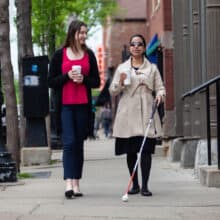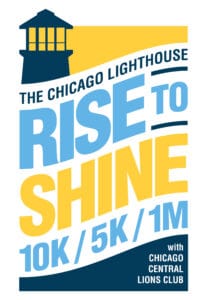Venezuela: An obscure chaos
September 8, 2016
Thanks to a large readership, Sandy’s View has become a popular blog followed by people from throughout the world! This week, we are introducing Axel Davila, a guest blogger and student at Georgetown University. Axel will be a contributor to Sandy’s View this semester. He is from Venezuela, and this week he discusses the current situation of people who are blind or visually impaired living in that country.
And now, I leave you with Axel’s first post!
For many years, Venezuela has been in the center of attention of international news for various reasons. Crimes, violence, inflation and shortages of food and other basic necessities have been the topics most often covered by the media. Nevertheless, one subject remains obscure: the situation of Venezuelans with disabilities, particularly that of those who are blind or visually impaired.
Unfortunately, there is still a lack of awareness about the needs and obstacles faced by people with vision loss, both in Venezuela and throughout the world. Although there are currently no official statistics regarding people with disabilities in Venezuela, a 2011 population census estimates that approximately 460,000 Venezuelans, or 1.7 percent of the population in that country, has a visual impairment.
The lack of accessibility of streets and the precarious situation in which visually impaired citizens live will unfortunately never be the center of Venezuelans conversations, as it has become a taboo subject. For this reason, it is especially important to hear from those who work with people with vision loss, or the individuals who are blind or visually impaired themselves. Otto Tovar lives in Caracas, the country capital, and he has been visually impaired since he was 27. He is the director of Sociedad Amigos de los Ciegos (Blind Friends Society), and he says that Venezuela is not accessible for people who are blind or visually impaired.
“In the area of visual disability, there is neither accessibility nor adaptability,” Tovar says.
He explains that in Venezuela, people who are blind or visually impaired learn how to be independent, but given the amount of accessibility barriers, they become dependent on others. Lack of signage in Braille and large print, absence of ramps, narrow sidewalks obstructed with bulky materials, non-compliance with traffic lights by drivers, and excessive noise are the main challenges people with vision loss encounter. All those obstacles cause even more precarious conditions, as it represents extra expenses to have someone as an escort at all times.
The scarcity of food and other products has been the main focus and concern of Venezuelans during the last few months. This problem is worse for people with visual impairments, because they no longer have preferential treatment, and they too have to wait in long lines to try to purchase food or other goods. In many cases, this wait can be between 6 and 8 hours long.
Although Venezuela has taken actions to assist people with disabilities, such as passing a law in 2007 requiring private and public companies to hire at least 5 percent of workers with disabilities, society has not given the necessary attention to this population, and this assistance could be considered minimum at best. While the country has made some progress compared to many years ago, blindness and visual impairment continue to be an overlooked topic, accessibility, and universal design are nonexistent, and Venezuelans with vision loss remain in an obscure chaos.
Back to Sandy: If you have any topic suggestions for Axel, please comment or send us an email to sandysview@chicagolighthouse.org.




